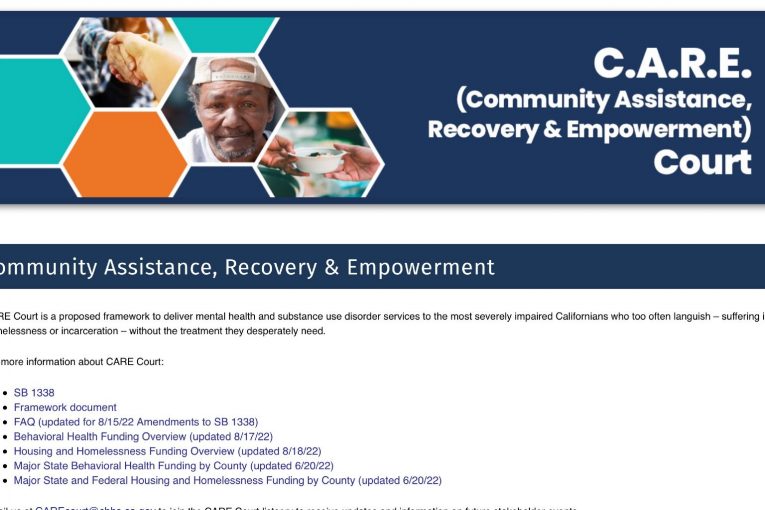

![]()
BY HUEY COLLETTE | STAFF WRITER
MAR. 16, 2023
SAN FRANCISCO— San Francisco County will follow through with California Gov. Gavin Newsom’s approved bill to create a court for its mentally ill houseless population. The counties of San Francisco, Glenn, Riverside, San Diego, Stanislaus, and Tuolumne will be among the first in the state to adopt the new program, CARE Court (Community Assistance, Recovery, and Empowerment).
The idea for the bill came from Gov. Newsom’s reaction to San Francisco’s ongoing houseless crisis. “There’s no compassion with people with their clothes off defecating and urinating in the middle of the streets, screaming and talking to themselves,” Newsom had said in a San Francisco Chronicle interview. “There’s nothing appropriate about a kid and a mom going down the street trying to get to the park being accosted by people who clearly need help.”
CARE Court’s initiative would strictly focus on the mentally ill, houseless population of California’s counties. Superior Court judges would be able to rule that counties supply housing, treatment, and other aid for up to 24 months. Counties that do not comply would then be forced through court-ordered fines of up to $1,000 a day.
The support provided by CARE Court would be, to an extent, involuntary, as there is a large emphasis on individuals who might be too sick to “understand” their situation. Houseless individuals can be brought before the Superior Court on criminal charges, and in other cases, family members, health workers, and others who share concern will be able to refer the unhoused to CARE Court as well. Depending on the ongoings of an individual’s trial, they might be brought under conservatorship, where a trained caretaker would be assigned to oversee them.
Civil rights and disability advocates have filed a lawsuit against the bill for its lack of support for voluntary treatment, citing that upholding the dignity of an affected individual is crucial to any substantive change. Advocates most critical of the bill have described it as “a politically expedient legal mechanism for removing a disfavored group of Californians from public view.” These observations most likely stem from the fact that more than 550,476 workers commute to San Francisco. Along with the city’s history of ongoing gentrification and ensuing displacement, the CARE Court program might be seen as a way to divert a problem that the city’s government is continually adding to.
Jessica Lehman, director of San Francisco nonprofit Senior and Disability Action, criticized the act by saying “the court setting would traumatize and criminalize people with mental illness, especially people of color who are already discriminated against in the criminal justice and health care systems.”
Currently, San Francisco’s unsheltered population stands at a total of 4,397, coupled with a sheltered population of 3,357. With some racial demographics being disproportionately overrepresented, “Black, African American, or African unhoused people are…38% of the total homeless population compared to 6% of the general population.”
On the other hand, some families who struggle with assisting untreated or undiagnosed loved ones may be in support of the CARE Court bill. In this light, CARE Court’s emphasis on involuntary treatment for houseless people suffering from drug addiction or severe psychotic illnesses such as schizophrenia might be seen as a necessity to protect them from being a danger to themselves or others.
The first wave of counties will implement the CARE Court bill as of October 1. The other remaining California counties will have until December 1 to implement the program.
Huey is currently a junior majoring in English and pursuing a minor in philosophy at UC Berkeley. He transferred from San Joaquin Delta College in Stockton, CA but bounced around different parts of the bay area throughout his childhood. When not feverishly reading or writing, he enjoys producing music, fencing, and horror films. He is a writer for Vanguard at Berkeley’s Prison Reform Desk.




